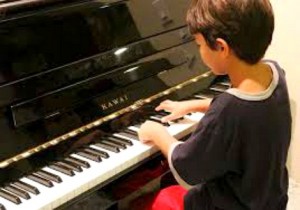
Fourteen musicians with at least 15 years of classical music training and 14 non-musicians participated in the study. The researchers tested the participants’ working memory and long-term memory while observing their neural activity using electroencephalography (EEG). To test working memory, the participants were shown a variety of pictorial or verbal items and were then asked to select the ones that they had just seen. To test long-term memory the researchers quizzed the participants at the end of the entire study session about whether each item from their test was new or studied.
The musicians performed better than the non-musicians on verbal input for both working and long-term memory. The musicians also outperformed the non-musicians in pictorial input, but only for long-term memory. This suggests that musical training is a benefit to long term memory, but only where images—not words—are concerned.
The EEG measurements demonstrated that musicians had faster neural responses in the mid-frontal part of the brain by 300 to 500 milliseconds. Their parietal lobes—part of the brain responsible for perceptual processing, attention, and memory—responded 400 to 800 milliseconds faster than those of the non-musicians.
The research team explained that this study does not answer why musicians have faster long-term memory for pictorial input. They posit that this boost could be the result of working with pictorial cues in sheet music.
This research team presented their findings at Neuroscience 2014, the International meeting for the Society for Neuroscience, in Washington, D. C.
Previous news in memory:



 © 2025 Unyte Health US Inc.
© 2025 Unyte Health US Inc.